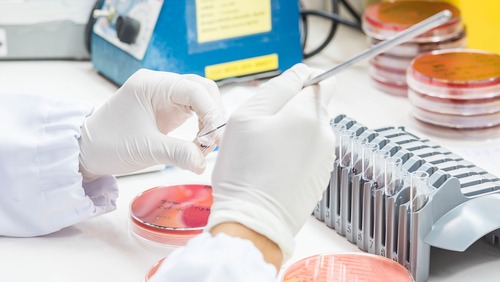
Combatting Antibiotic-Resistant Bacteria (CARB-X) awarded $5.3 million to Lumen Bioscience to develop a new immunotherapy to prevent diarrheal diseases caused by two specific pathogens — Campylobacter jejuni and enterotoxigenic E. coli.
Diarrheal diseases are intestinal infections caused by contaminated food or water. While most healthy adults survive in developed countries, that is not the case in low- and middle-income countries (LMICs). In LMICs, diarrhea is a leading cause of death and disease among infants and children, killing 2,195 children every day. That is more than AIDS, malaria, and measles combined, according to the US Centers for Disease Control and Prevention (CDC).
Worldwide, diarrheal diseases account for one in nine child deaths. It is the second leading cause of death among children under the age of 5.
“Preventatives are urgently needed for deadly infections,” said Erin Duffy, R&D chief at CARB-X, a global non-profit partnership led by Boston University that funds the development of products to address antibiotic-resistant bacterial infections. “The Lumen project is an extremely innovative immunotherapy in the early phases of development, and if successful, could potentially transform the way we prevent deadly infections in infants and children, and save precious lives.”
The Lumen project, LMN-GI-EEC-401, is an oral antibiotic-alternative biologic developed with Lumen’s proprietary manufacturing process that utilizes spirulina expression. The objective is to develop a food-grade immuno-prophylactic drug at a low cost for use worldwide. The work is being done in collaboration with the US Naval Medical Research Center.
“The ability to effectively prevent and treat diarrheal diseases, which have devastating impacts in the developing world, has been compounded by the sheer scale and costs inherent in traditional drug development,” Jim Roberts, co-founder and chief scientific officer of Lumen Bioscience, said. “Our unique approach offers the potential to provide an effective approach at a low cost and mass scale, and we are grateful for the support from CARB-X to help advance this promising approach.”
The project could be eligible for up to $8.26 million more in funding from CARB-X if milestones are met.
CARB-X receives its funding from the US Biomedical Advanced Research and Development Authority (BARDA), the Wellcome Trust in the UK, the UK Global Antimicrobial Resistance (AMR) Innovation Fund (GAMRIF), Germany’s Federal Ministry of Education and Research (BMBF), and the Bill & Melinda Gates Foundation

